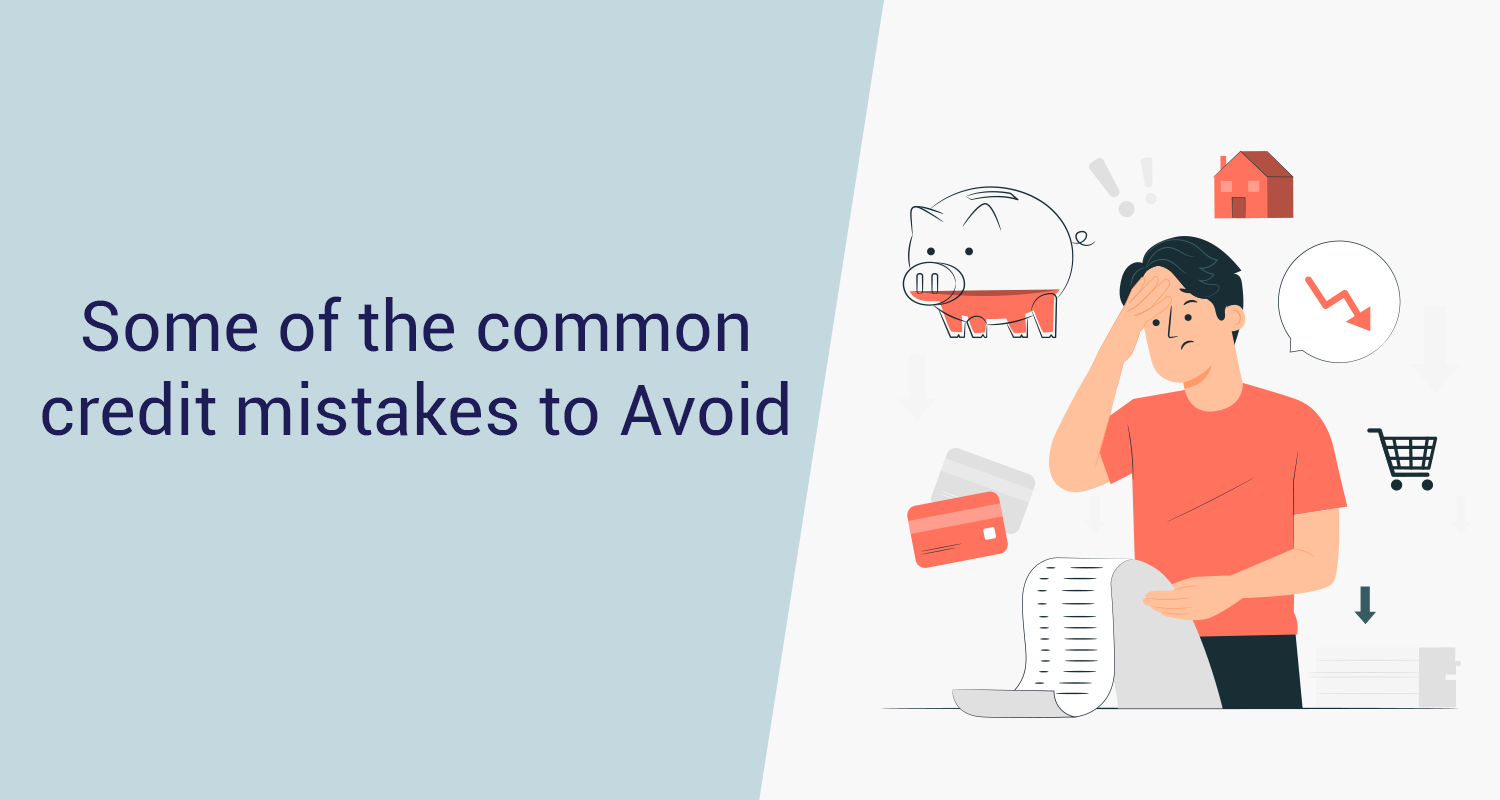Bad Practices That Lead To Bad Credit Score & How To Fix It

Banks and other financial institutions assess your profile to determine your credit worthiness before giving loans. Your credit score plays a major role in this. Credit score is a three-digit number given by credit bureaus and depends on your past loans, repayments, current debts, credit card bill payment etc. A good credit score helps in getting your loans approved quickly and easily.
Credit score ranges from 300 to 900 and a score of less than 650 is not considered to be good. Such low score labels you as a risky borrower and banks or financial institutions may reject your loan or credit card application. Even if you get a loan it may come at a considerably higher rate of interest. Skipped or delayed payment of equated monthly installments or EMIs and credit card bills, maintaining a high credit utilization ratio etc negatively impact your credit score. You should avoid such activities. Since the score can change from time to time, there are ways to improve and maintain a good score.
What Are The Bad Practices That Lead To Bad Scores?
• Irregular Payment History
One of the major reasons for bad score is an irregular and an unpredictable payment record. This is due to delayed or missed payment of EMI of any type of loan or your credit card bill. Even paying minimum due amount of the total amount results in a low credit score.• Credit Utilization Ratio Above 30%
The percentage of credit being used against the total credit available is called the credit utilization ratio. Higher ratio means that you are highly dependent upon the credits thus you are likely to become a defaulter. A ratio of 30% or above is considered to be a high credit utilization ratio.• Lack Of Mix Of Credit Products
If your financial profile is lacking a mix of credit products then you may get low or bad score. Your profile should have a mix of personal loans, home loans, vehicle loans, credit cards etc.• Applying For Multiple Loans
Applying for multiple loans and credit cards back-to-back may impact your credit score. It will cast a doubt on your capacity to manage your money and pay your bills on time.• Not Reviewing Your Credit Report Regularly
Your financial actions related to credits are reflected in your credit report. Checking your credit reports regularly will give you an insight as to what actions led to a bad score. It will also help you take proper actions to rectify the bad score. You may also check for any inaccurate or incomplete information or errors in the report.• Too Many Credit Inquiries
When you want to apply for a loan, you may inquire at too many banks or financial institutions. This negatively impacts your score.• Opting For A Settlement Instead Of Loan Closure
Settling a loan or a debt due to some unfortunate instance can have an adverse effect on your score. The mark ’settled’ remains in your credit report for next seven years. Thus, your future loan possibilities will be compromised for a longer period.• Defaults In The Loan Accounts Where You Are Co-Signer Or Guarantor
As a co-signer or guarantor you are equally responsible for the loan repayment as the main applicant. Their irregular payments can adversely affect your score. Therefore be sure of the credit worthiness of the main applicant before helping them out.How Will Bad Score Impact You?
• Your loan or credit card applications may be rejected
• You may get a loan approved but at a considerably higher rate of interest
• You may not be able to enjoy premium credit card offers, rewards and benefits.
• You may have to pay higher insurance premiums as nowadays insurance companies check your credit score to determine your timely payments
How To Fix A Bad Score
A bad score defers you from taking advantage of the financial tools available in the market. A bad score can be rectified by following ways:• Keep a check on your credit report. In case of any discrepancy, frauds, errors, inaccurate or incomplete information report to the credit report agency as well as bank and get it rectified immediately.
• On-time bill payments. Make sure to pay your credit card bills in entirety and loan EMIs before the due date.
• Lower the credit utilization ratio. A low ratio shows your lesser dependency on credits thus improves your credit score.
• Request a credit card with higher limit. In case you are a frequent credit card user then increase your card’s limit. This will enable you to keep a lower credit utilization ratio.
• Make sure the loan account where you are a co-signer has a good payment history.
• Try to close a loan instead of settling it. You should settle a loan only if you have exhausted all your means to repay the loan.
• Do not close the old good credit accounts that have been paid timely and in full. When they are reflected in your credit report they imply a good financial discipline and improve your credit worthiness.
Conclusion
A bad credit score is a result of an individual’s mismanagement of his finances. But there are ways to improve the score. The individual needs to practice certain actions like timely payment of bills and EMIs, check credit report regularly, maintain a low credit utilization ratio etc. to improve the credit score.
IIFL Finance helps provides a detailed analysis of your credit behaviour and fetches your CIBIL score instantly and for free. IIFL Finance also provides expert tips to improve your credit score. It also provides exciting personalised loan offers based on your credit score.
Disclaimer: The information contained in this post is for general information purposes only. IIFL Finance Limited (including its associates and affiliates) ("the Company") assumes no liability or responsibility for any errors or omissions in the contents of this post and under no circumstances shall the Company be liable for any damage, loss, injury or disappointment etc. suffered by any reader. All information in this post is provided "as is", with no guarantee of completeness, accuracy, timeliness or of the results etc. obtained from the use of this information, and without warranty of any kind, express or implied, including, but not limited to warranties of performance, merchantability and fitness for a particular purpose. Given the changing nature of laws, rules and regulations, there may be delays, omissions or inaccuracies in the information contained in this post. The information on this post is provided with the understanding that the Company is not herein engaged in rendering legal, accounting, tax, or other professional advice and services. As such, it should not be used as a substitute for consultation with professional accounting, tax, legal or other competent advisers. This post may contain views and opinions which are those of the authors and do not necessarily reflect the official policy or position of any other agency or organization. This post may also contain links to external websites that are not provided or maintained by or in any way affiliated with the Company and the Company does not guarantee the accuracy, relevance, timeliness, or completeness of any information on these external websites. Any/ all (Gold/ Personal/ Business) loan product specifications and information that maybe stated in this post are subject to change from time to time, readers are advised to reach out to the Company for current specifications of the said (Gold/ Personal/ Business) loan.



